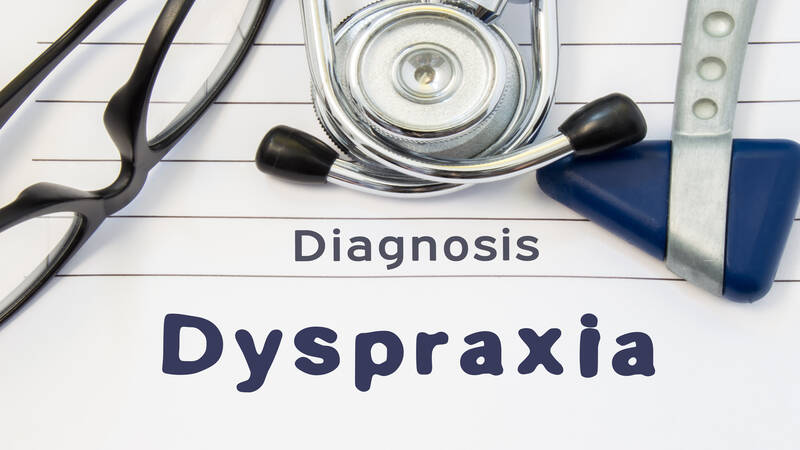
Does your baby find it hard to perform a wide range of regular physical activities suitable for his or her age, such as putting on clothes, hopping, running, speaking clearly and holding a pencil or writing alphabets? If your answer is yes, and you wonder why this happens, then here is the answer. Your toddler might be suffering from dyspraxia, a condition that affects fine or both fine and gross motor coordination in children. Understanding more about it can help you find the most beneficial remedies for your child. Continue reading to know more on this problem.
What Is Dyspraxia?
Dyspraxia is a neurological condition that impairs movement as messages sent from the brain to the muscles are interrupted. It is also known as developmental coordination disorder. It is directly associated with the child’s motor skills. As the name implies, a child with dyspraxia makes it hard finds it difficult to organize and carry out physical activities in the right order. Roughly around 5 to 10 percent of the children of which 2% show acute dyspraxia symptoms.
Types Of Dyspraxia
There are different types of dyspraxia
- Motor dyspraxia: It brings about issues with single-step motor tasks like writing, dressing, combing hair, waving the hand, walking etc. and furthermore, create issues to perform a sequence of movements, like brushing teeth, making a bed, running, skipping, etc
- Verbal dyspraxia: This issue does not include either some sort of oral muscle nor is it an intellectual disorder. Children facing this disorder need to think even for repeating the same word several times as they find difficult to coordinate muscle movements needed to pronounce words. Therefore, verbal dyspraxia is different from stammering
- Oral dyspraxia: This includes issues with movements of the mouth and tongue, thereby, effecting pronouncing the words clearly. The child seems blabbing when they try to talk. They may find trouble with eating and swallowing too
What Causes Dyspraxia In Children?
The reason for dyspraxia is not yet clear. However, it is believed that dyspraxia happens because of some developmental issues in the information processing system of the brain. Experts believe that the child’s motor neurons (nerve cells that control muscles), for some reasons are not developing properly, or are getting damaged. If this happens, the brain requires more time to handle data. The following factors increase the risk of the disorder in children:
- Premature babies
- Children born with low birth weight
- Alcohol or drug abuse by mother during gestation period
- Genetics could also play a role
- A brain injury due to illness, a stroke, or an accident
Dyspraxia can also accompany with other conditions such as attention deficit hyperactivity disorder, mental retardation, etc.

Symptoms Of Dyspraxia In Children
Generally, the symptoms of Dyspraxia appear quite early in baby’s life. The child may be slow to reach developmental milestones, such as rolling over or walking. The signs differ, as your child gets older. Here are some basic symptoms of dyspraxia in children.
- Toddlers with dyspraxia are more prone to accidents as they show a tendency to bump into things more frequently and fall down. Especially running into other children and tripping over his own feet
- Poor concentration and listening skills. Unable to concentrate on a single thing for a long time
- The trouble with accomplishing activities that require sense of balance and motor coordination like climbing steps, kicking the ball, hopping, jumping, etc
- Unable to ride a tricycle
- Toilet training will take more time and effort
- May not be able to talk like other kids of the same age. Sometime he or she may not utter a word until they turn 3. Even if they could talk, they may not be able to pronounce words clearly and talk fluently with right volume and pace
- May not be able to grasp things properly. Especially, holding a pencil and drawing or scribbling. The Child will always tend to drop things
Diagnosing Dyspraxia In Children
It can been difficult to diagnose dyspraxia in toddlers below 5 years as often small children are little clumsy when they are learning a new skill or movement. Keen observation plays an important role in diagnosing dyspraxia. If you recognize some unusual signs and symptoms, seek an appointment with your child’s pediatrician. The symptoms should persist for at least six months as many of the symptoms explain above can be an indication of any other issues. If the pediatrician suspects dyspraxia in your child, depending on the symptoms, he will refer the child to
- Physiotherapists to check if motor skills lag behind what’s expected based on the child’s age
- Occupational therapist to check whether the child is experiencing oral or motor dyspraxia
- Speech pathologist to check if the baby is experiencing verbal dyspraxia
How To Treat Dyspraxia In Children?
Despite the fact that at present there is no specific treatment and medication for dyspraxia, there are several means to help the child to get the most out of their adapting abilities. Physical, speech and occupational therapy can help the child to manage the condition. Earlier the diagnosis, the better will be the result of these therapies.
Dyspraxia is not curable but there can an improvement in your child’s condition as he gets older and the symptoms lessen. For this it is necessary to give the right treatment and advice in order to reduce the day to day difficulties that dyspraxia can cause in your child.
Some of the activities that you can also do with your child are:
- If your child suffers from coordination problem, in order to help him with his development you can do a number of activities like making him walk slowly on a straight line, circle or any shape that has been chalked or taped on the floor
- In order to improve his hand- eye coordination, you can throw objects like balloons, scarves, balls of different sizes etc. at him and make him catch them
- If your child struggles with wearing clothes or dressing up them give him easy fitting clothes or shoes with Velcro fastening
- To help with developing his fine motor skills you can provide your child with chunky pens or crayons that are easy to hold
- Encourage your child to play with play doh or homemade dough with the help of which he can make different shapes by squeezing and pinching them
Do you have a child who suffers from dyspraxia? What do you do to help him? Please share your experience in the comments section below.
FAQ’s
1. Is Reading in Reverse a Symptom of Dyslexia?
Yes, it is. However, children take time to associate sides. So do not worry unless you see other symptoms as well.
2. How Can I Know my Child Has Dyslexia?
It can be tricky. It can take a long time for confirmed diagnosis. If you see any prolonged learning difficulties, do get it checked.
3. Does my Baby Missing a Milestone Indicate Dyslexia?
No, it does not. It only means your child is slower than many others. Just give your child some time.
4. Can Speech Development Indicate Dyslexia?
Yes, it can. However, do not get confused with baby babble and dyslexia. Do watch out for other signs and get professional check up if needed.
